What to know
CDC offers resources to help you learn about the importance of men and women 45 years old or older getting screened for colorectal (colon) cancer regularly.

CDC offers resources to help you learn about the importance of men and women 45 years old or older getting screened for colorectal (colon) cancer regularly.
Videos
Screen for Life: Strangers with Colons
- Bryce and Rahman answer questions about prep, the procedure, and the follow up for this colorectal cancer screening option. A 30-second version is also available.
- Erin and Sandy answer questions about prep, the procedure, and the follow up for this colorectal cancer screening option. A 30-second version is also available.
Screen for Your Life
The following videos tell stories of people putting their health first and encouraging everyone 45 or older to get screened for colorectal cancer.
- Screen for Your Life: This video tells the story of three people who are making the choice to put their health first and get screened for colorectal cancer.
- Screen for Your Life: Father: This video tells the story of a man who is making the choice to put his health and family first.
- Screen for Your Life: Office: This video tells the story of a woman who is making the choice to put her health and her dreams first.
- Screen for Your Life: Store: This video tells the story of a man who is making the choice to put his health and family first.
You've Got Guts
- Colorectal Cancer Awareness Month: March is National Colorectal Cancer Awareness Month. If you're 45 or older, there's no better time to start screening. A 6-second version is also available.
- Colorectal Cancer Screening Saves Lives: If you're 45 or older, it's time to start screening for colorectal cancer, even if you don't have symptoms or a family history.
- Screen for Life: You've Got Guts: If you're 45 or older, it's time to screen for colorectal cancer. It takes guts to put your health first. Start today.
Success story
- Making Colon Cancer Screening Accessible to All in Iowa: Eastern Iowa Health Center provides colorectal screening services to diverse populations in the region. The health center partners with Neighborhood Transportation Services at Horizons Family Service Alliance to reduce transportation barriers to health care for immigrants, refugees, people who are experiencing homelessness, and many others.
Print materials
These materials were developed by the Screen for Life campaign for the general public, health care providers, campaign partners, and health organizations. You can download these materials and print them at home or at a local print shop.
Note: Content developed by CDC's Screen for Life campaign is available for public use exactly as it is found on CDC's website, without being changed in any way. If you have questions about how you may use these campaign resources, or if you would like to request print ads or print disks, please call 1 (800) CDC-INFO (800-232-4636) or contact CDC-INFO.
Fact sheets
- Colorectal Cancer Screening
- Colorectal Cancer Screening Saves Lives
- Colorectal Cancer Screening Tests at a Glance
- Colorectal Cancer Risk Factors and Symptoms
Brochure
Social media posts and images
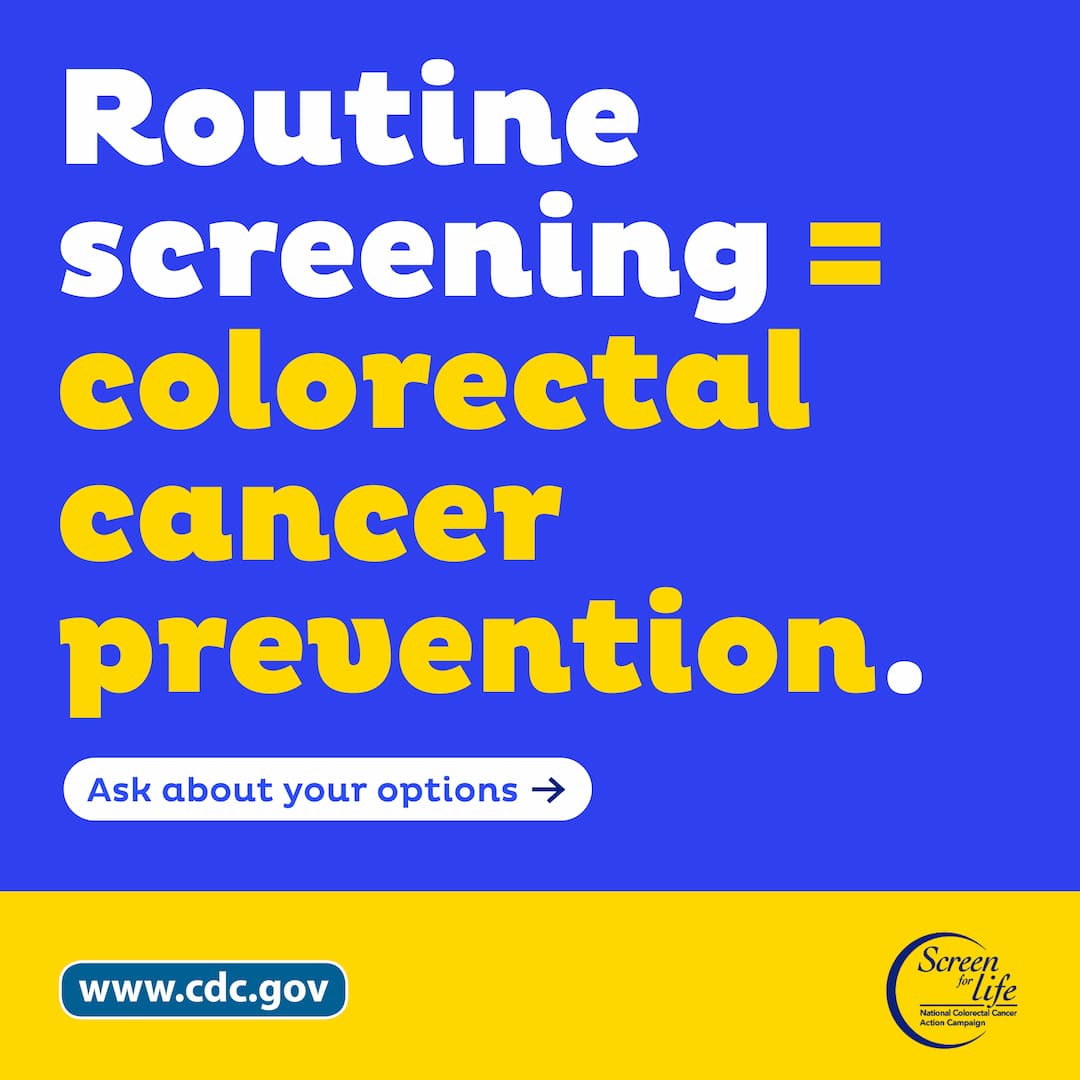
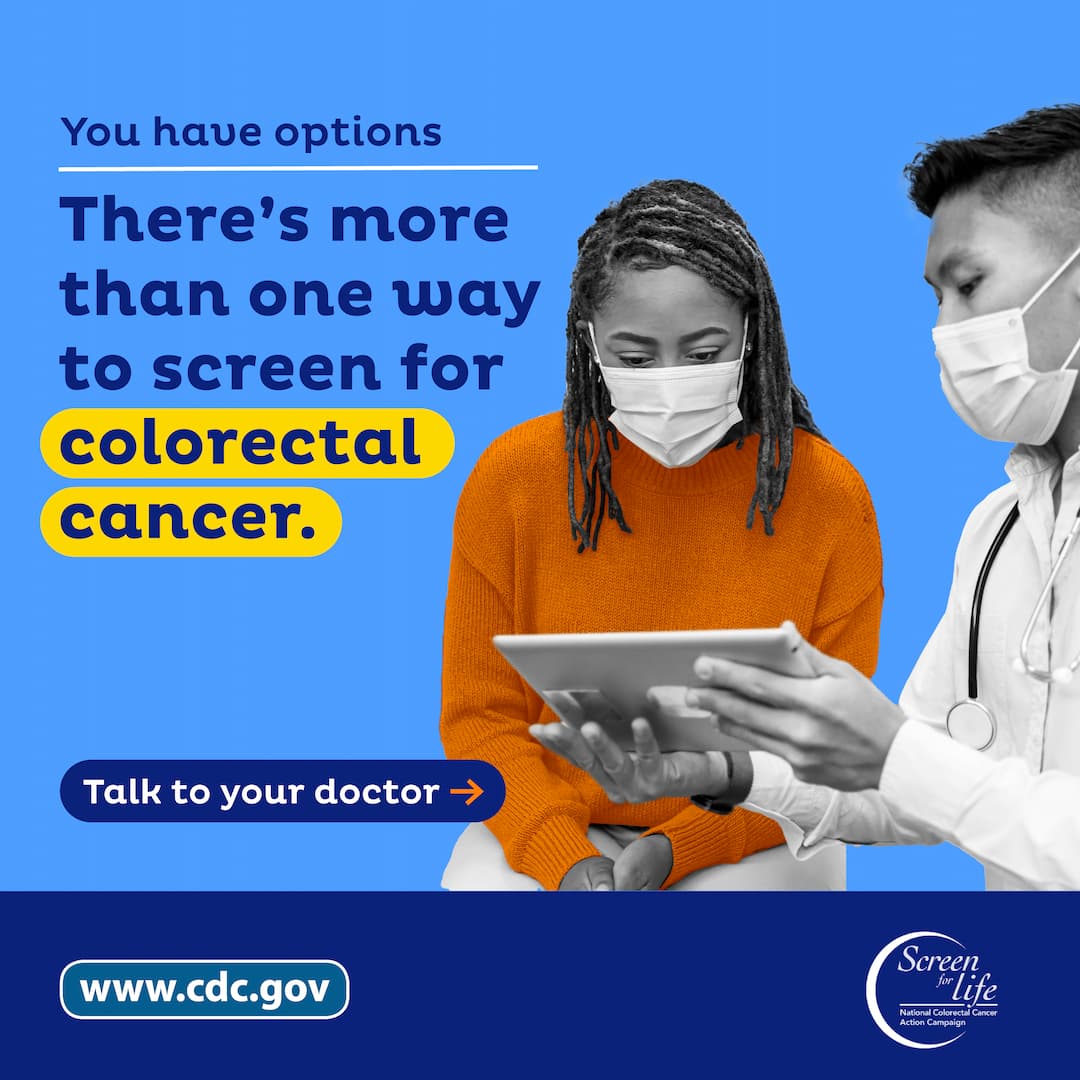
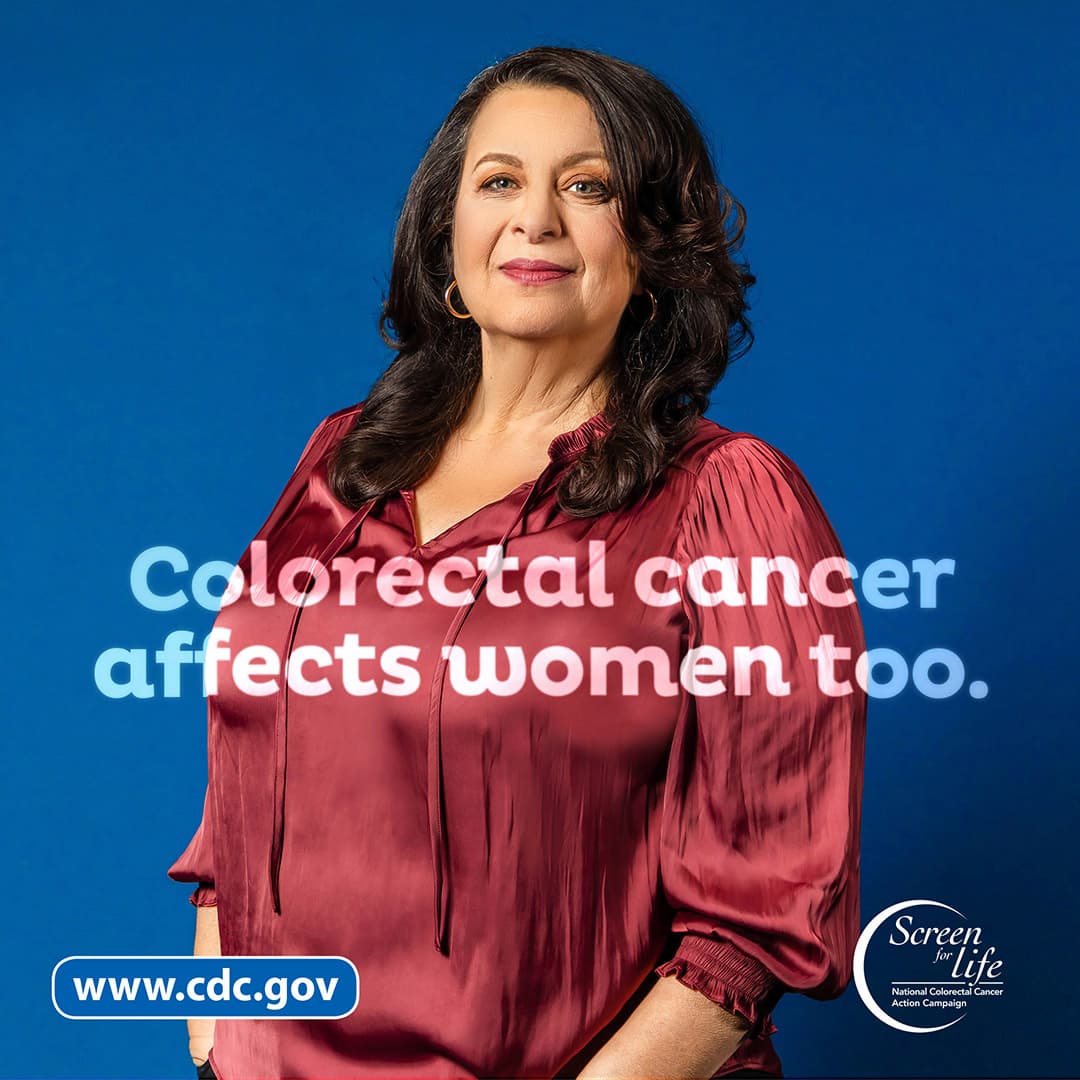
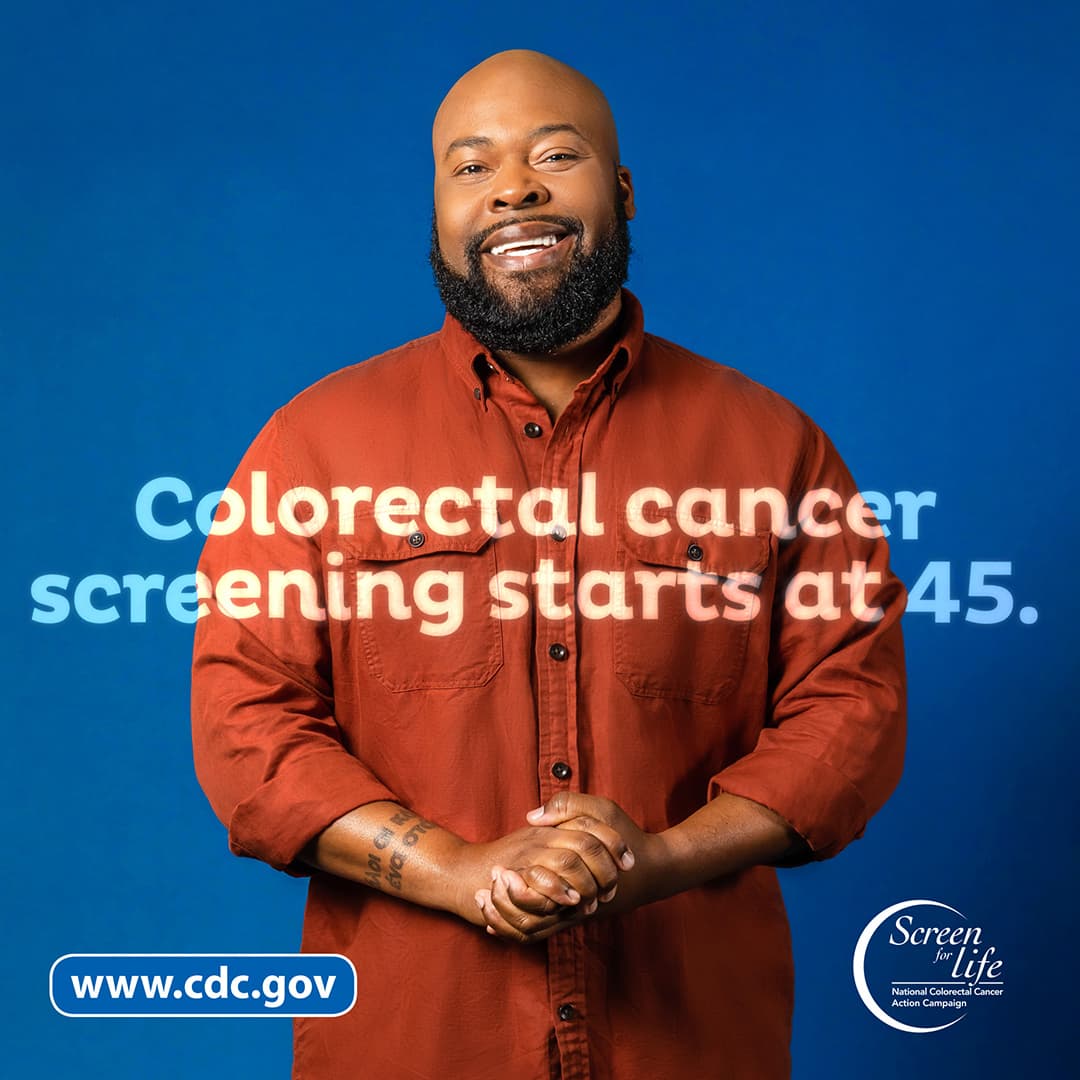
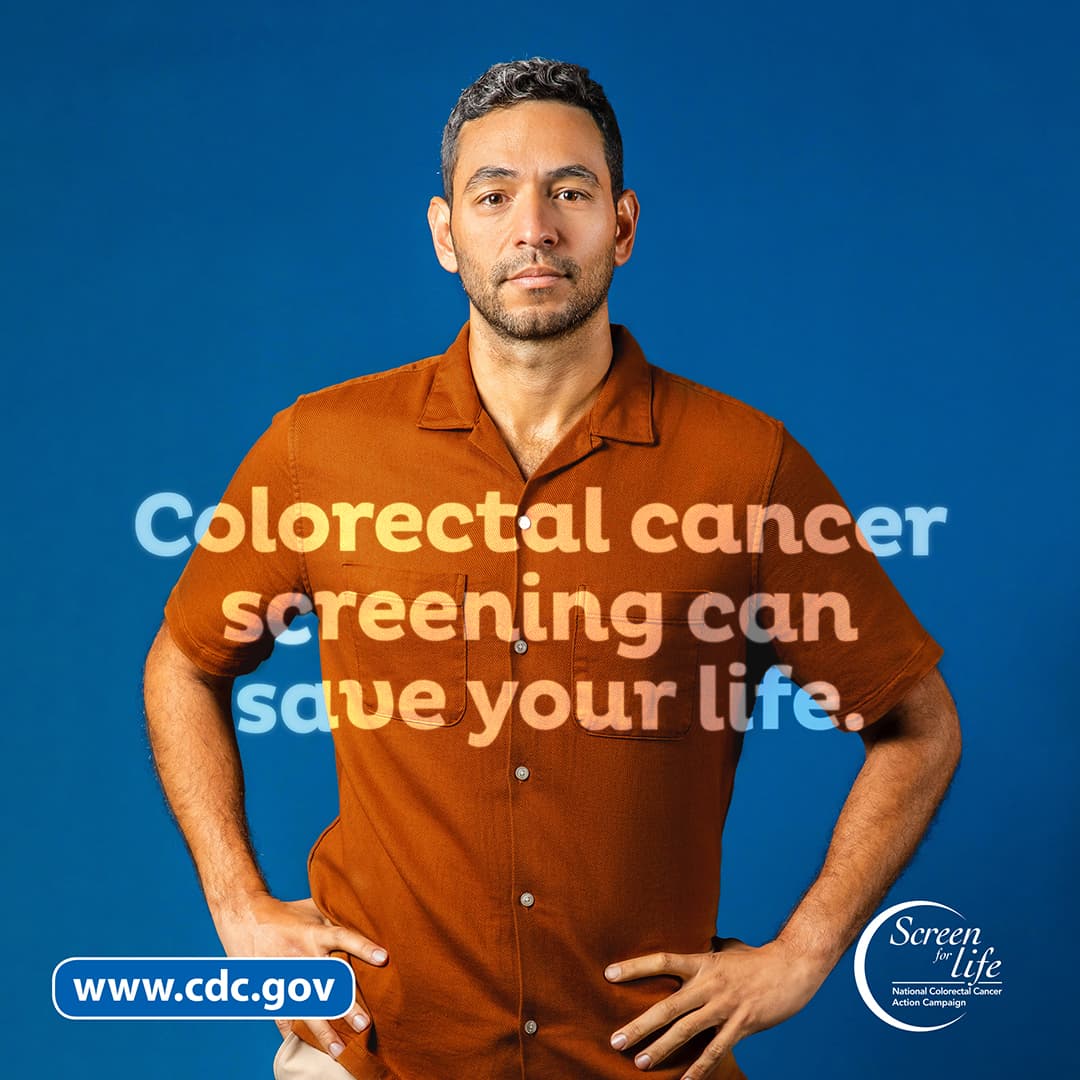
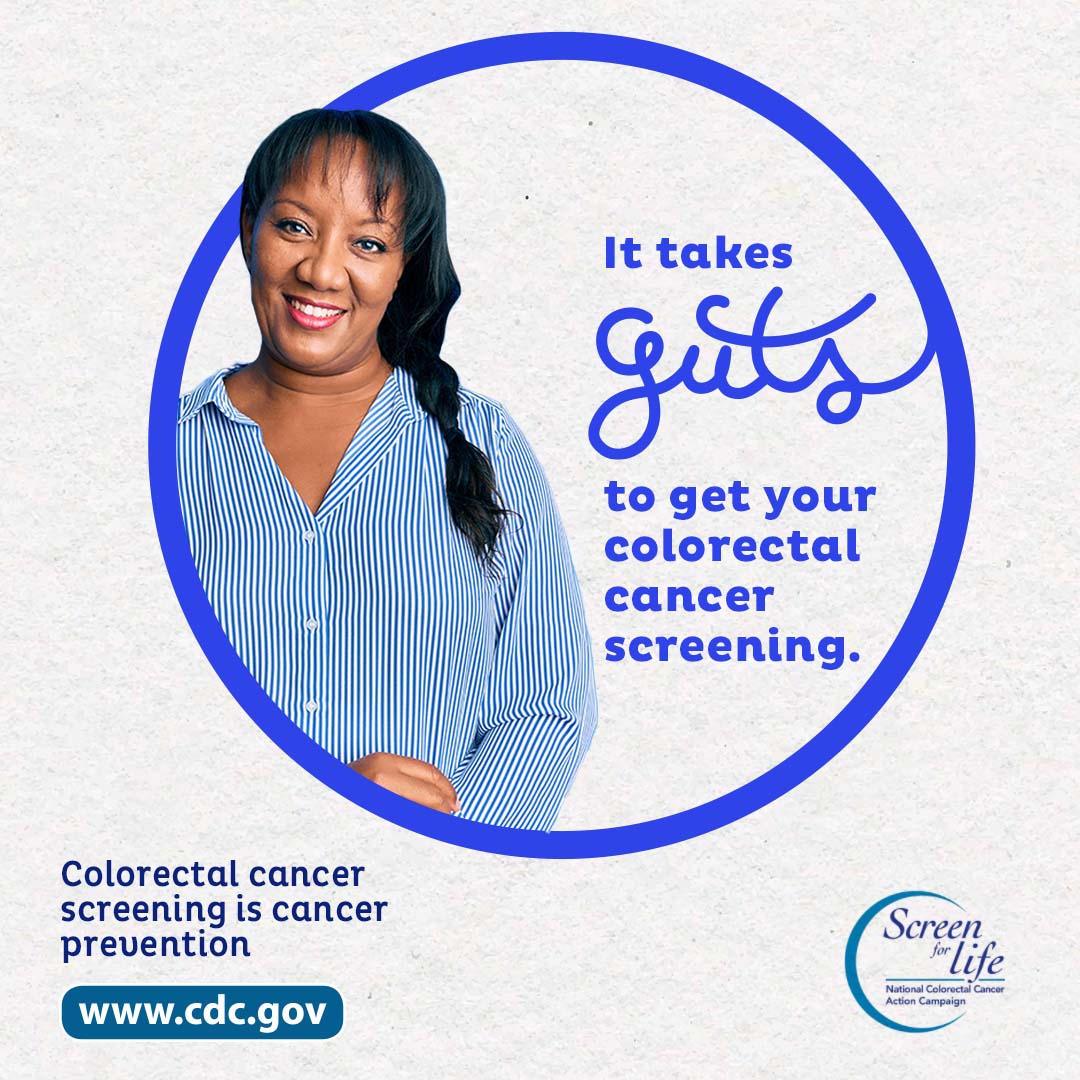
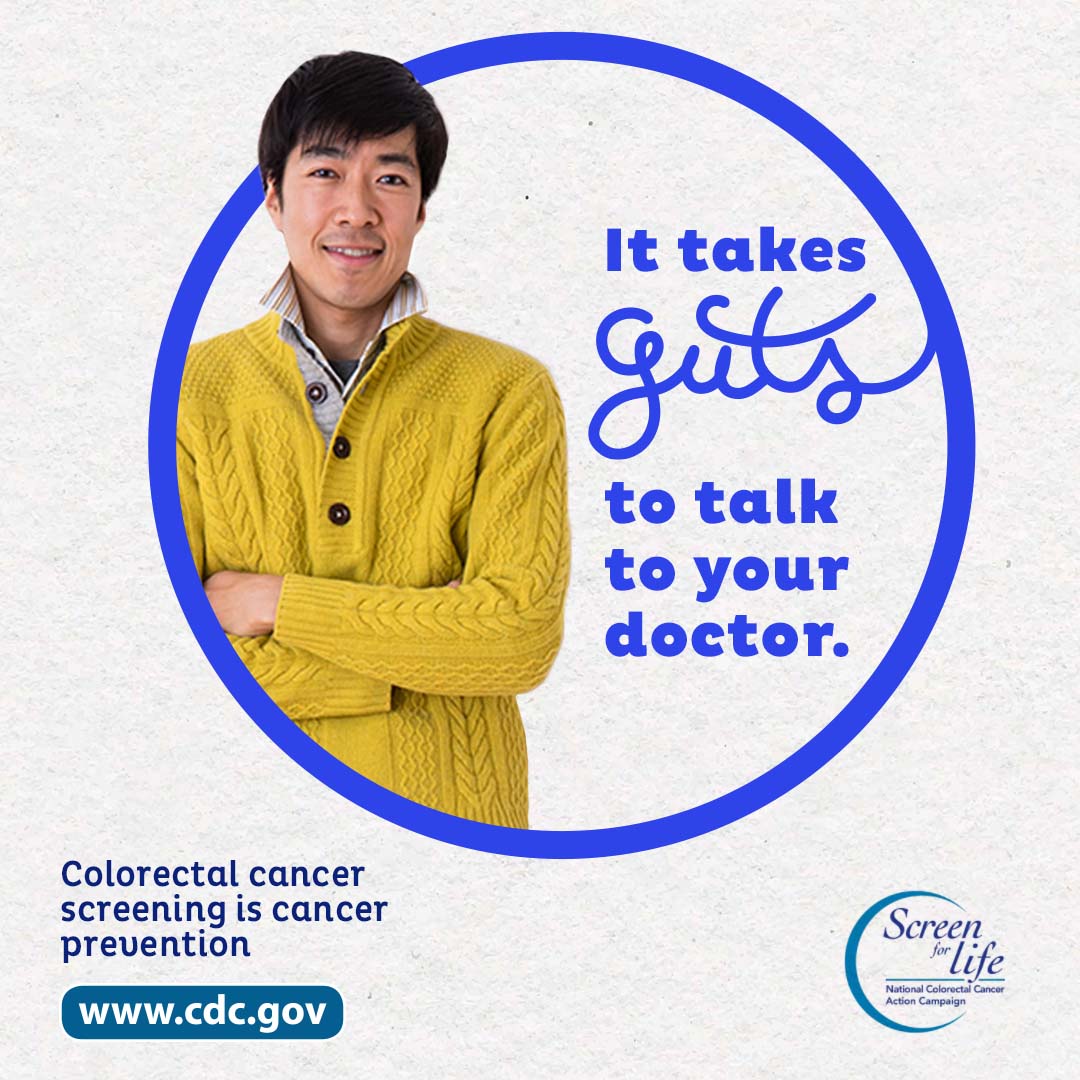
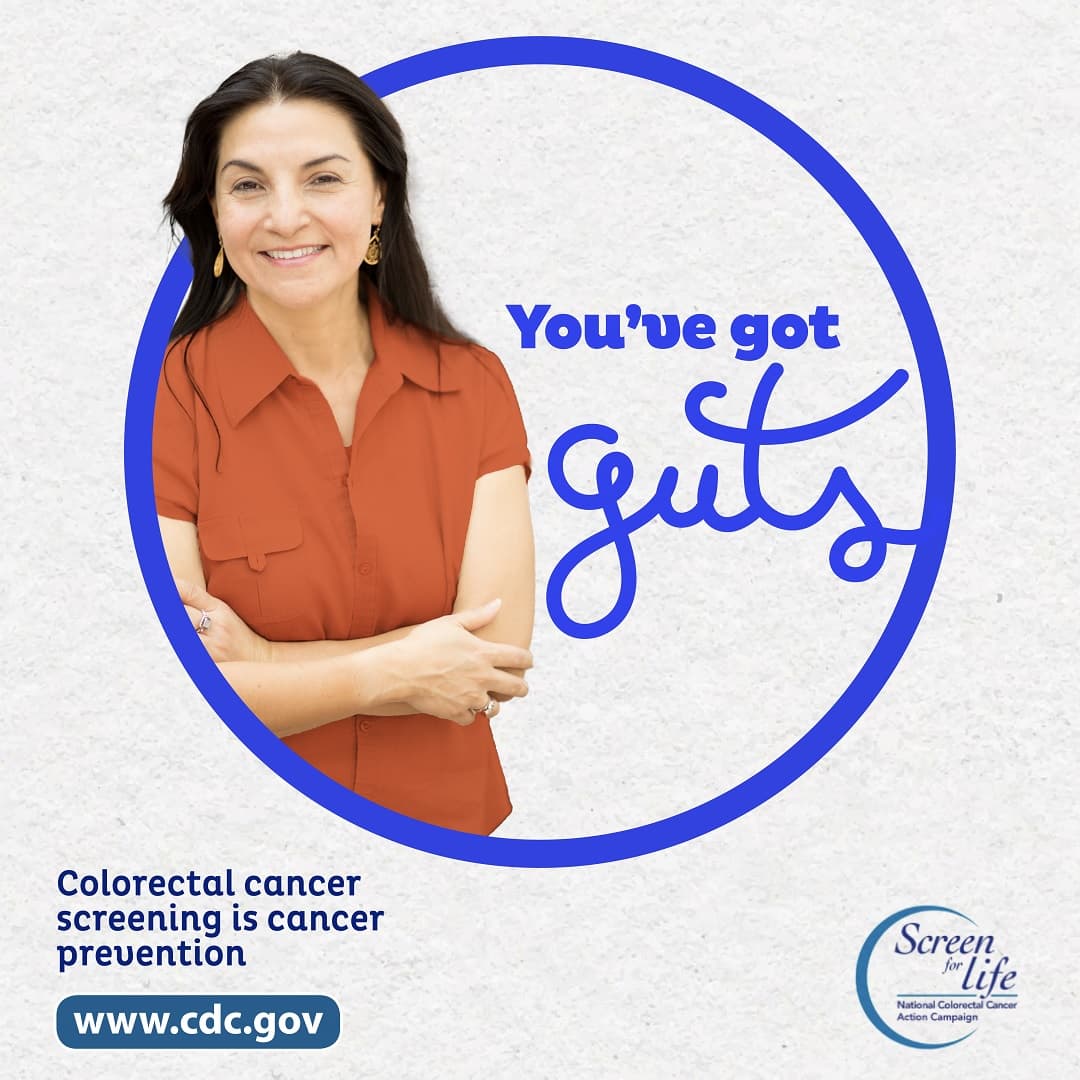
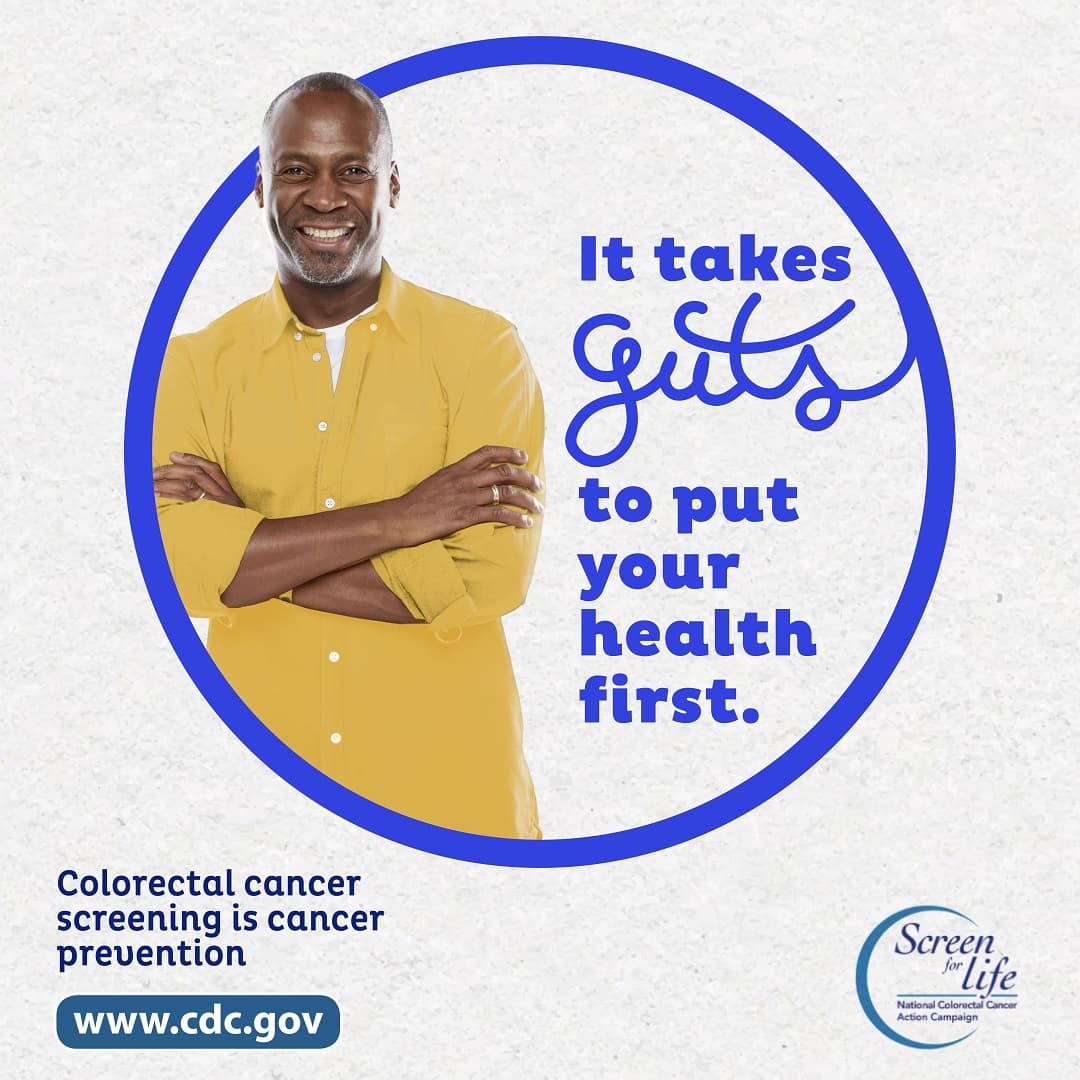
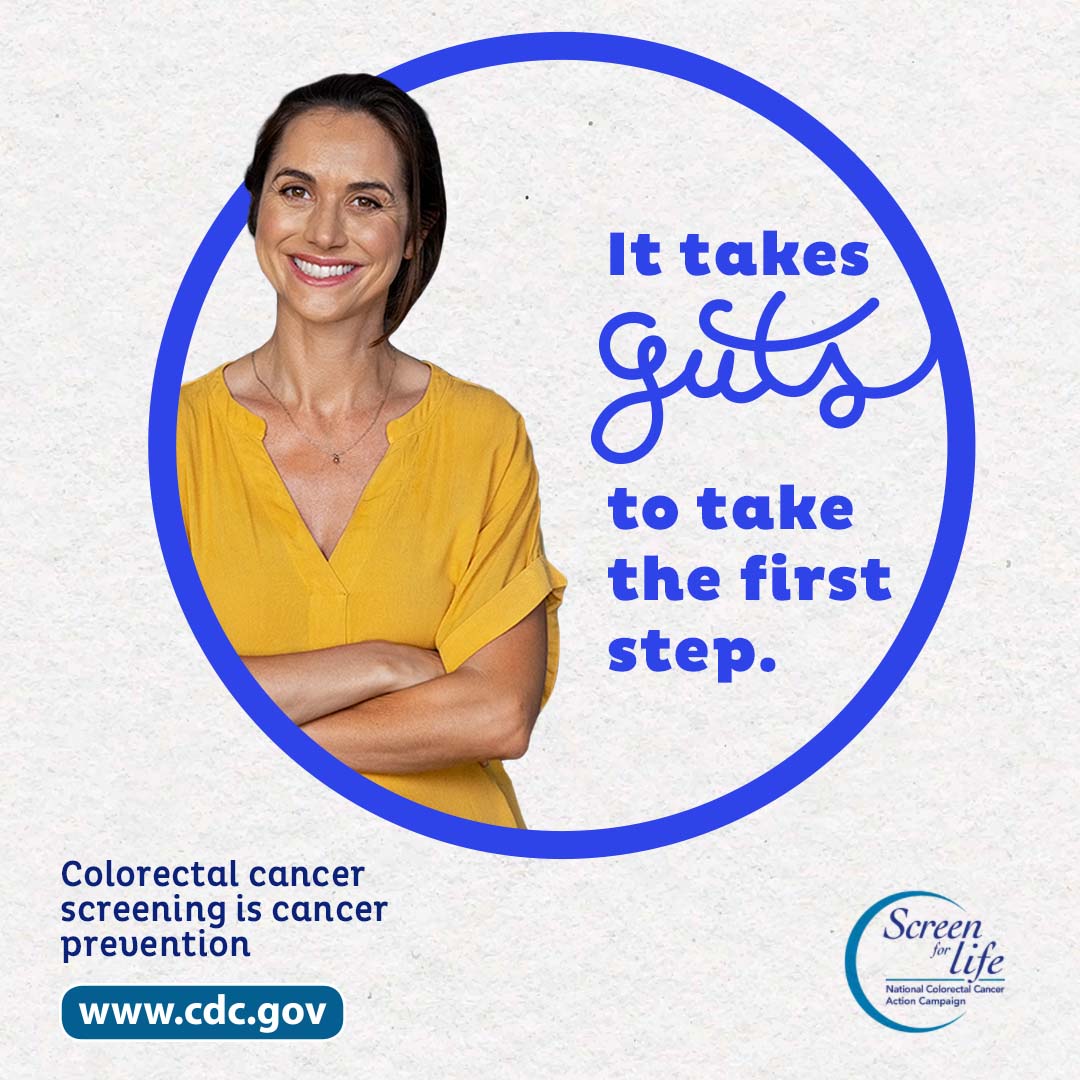
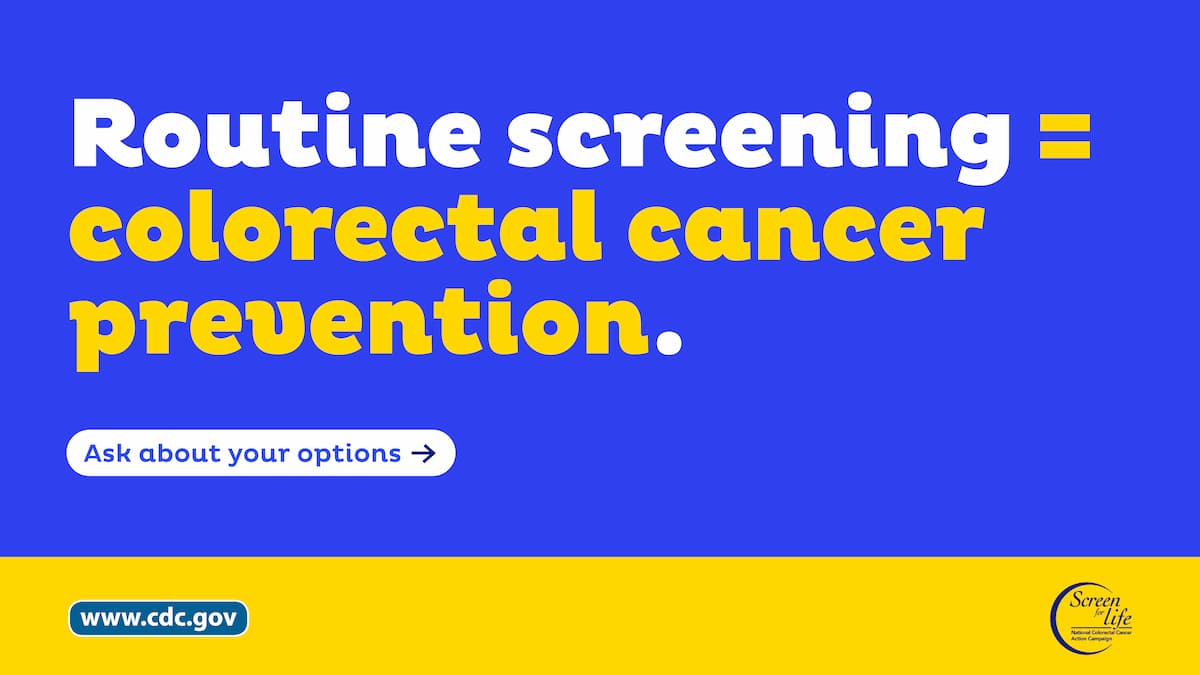
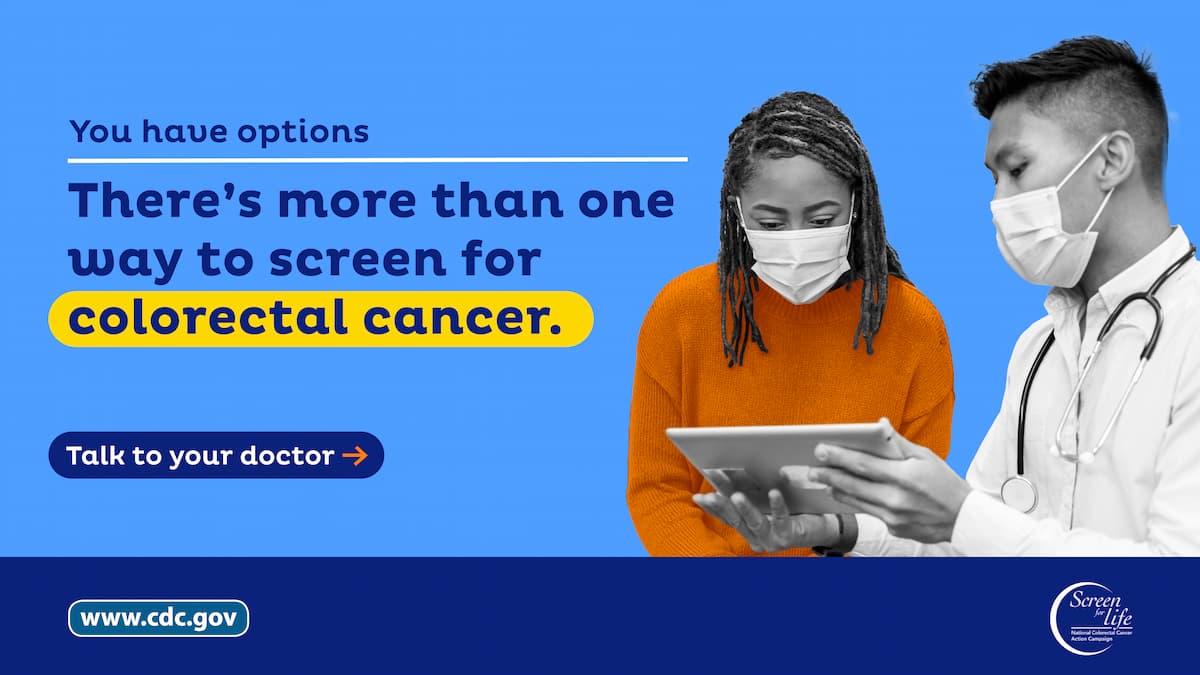
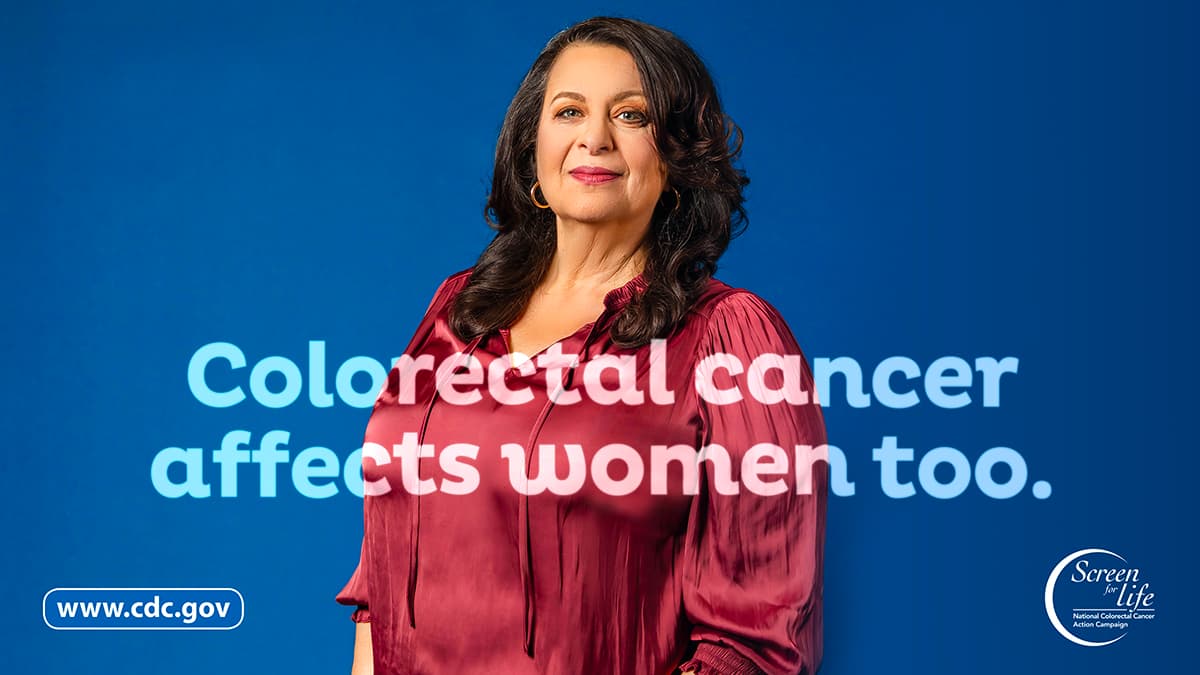
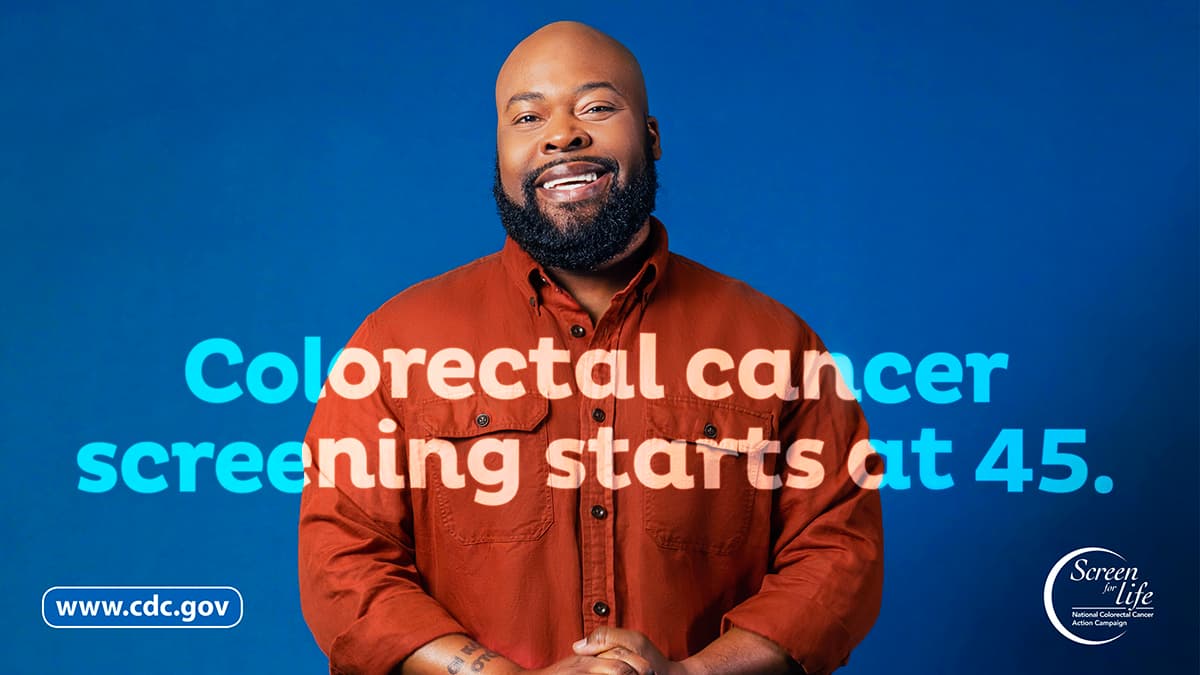
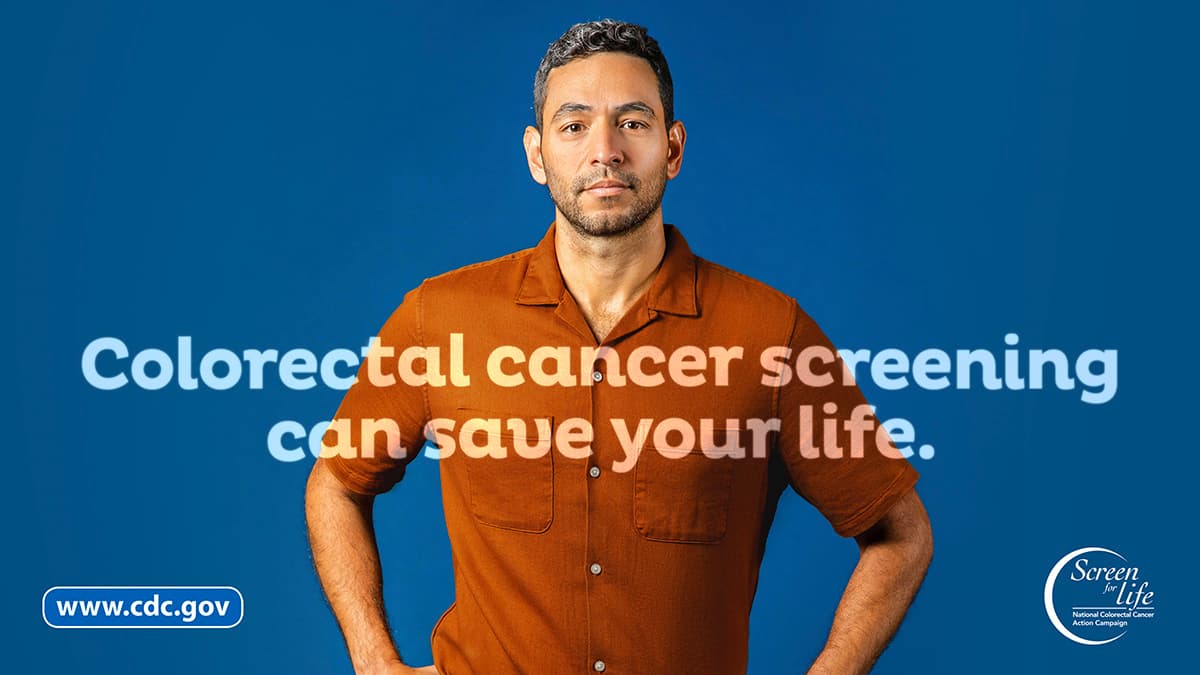
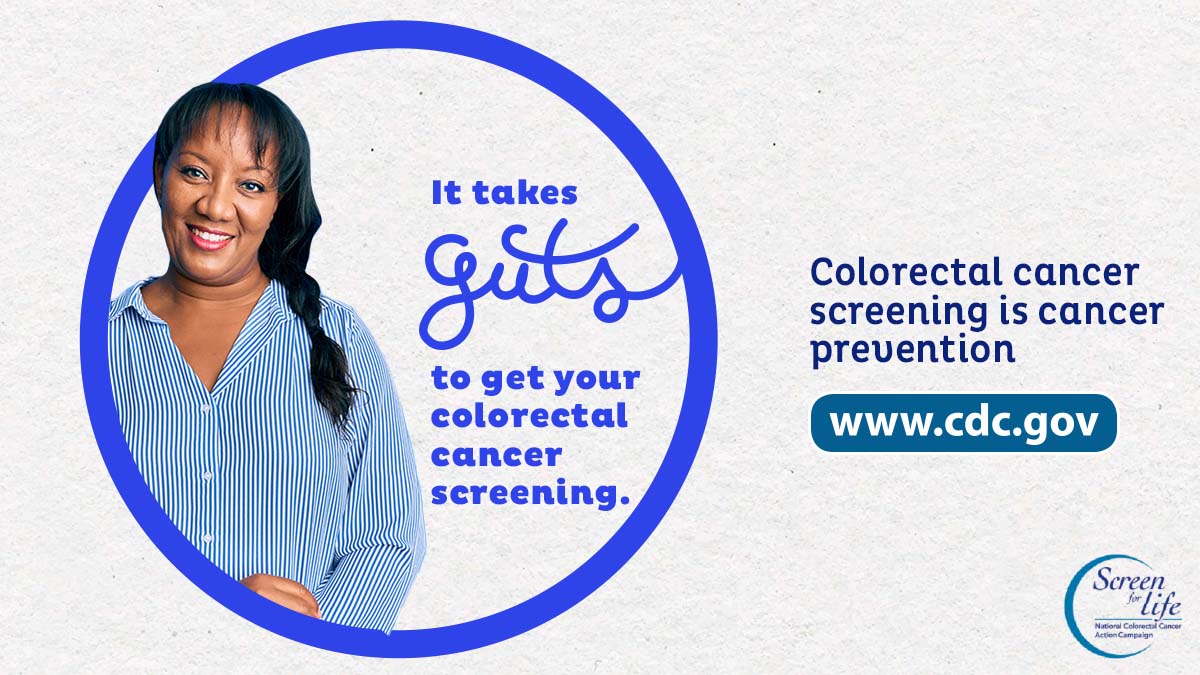
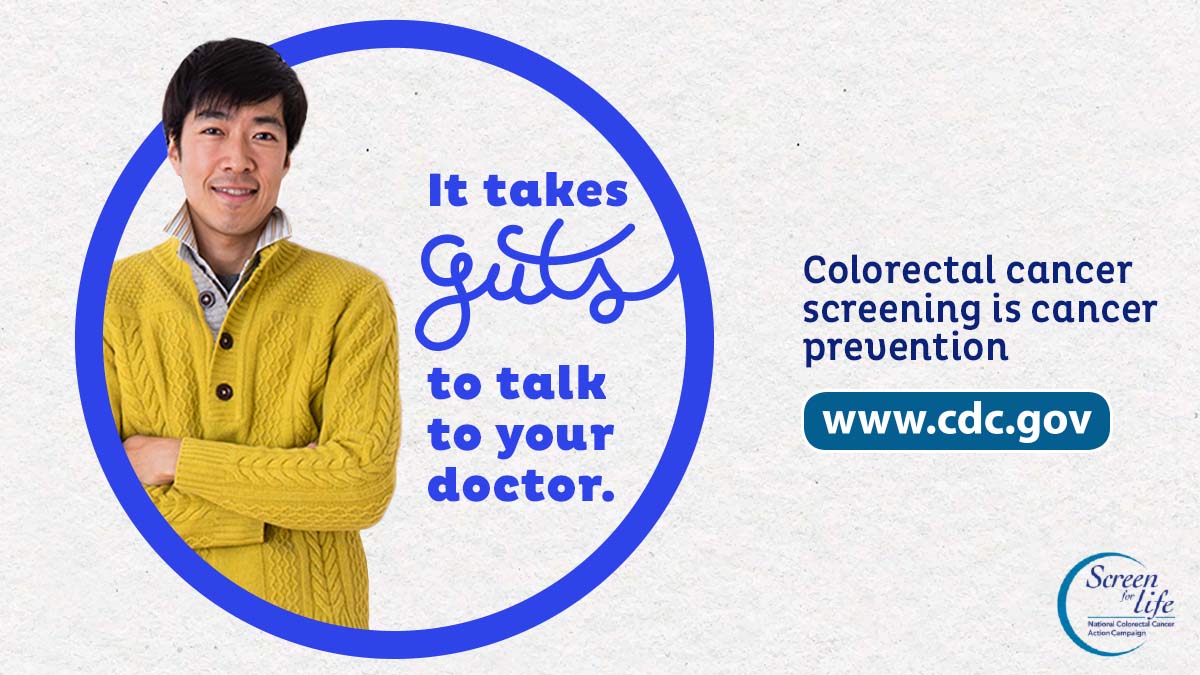
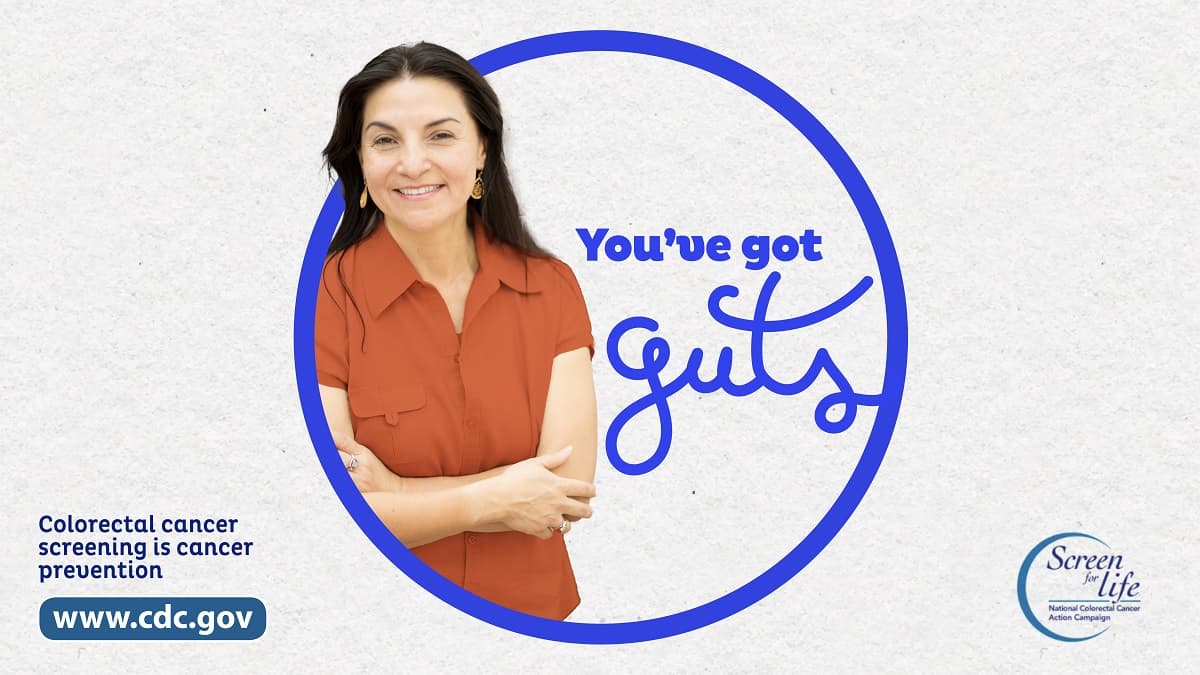
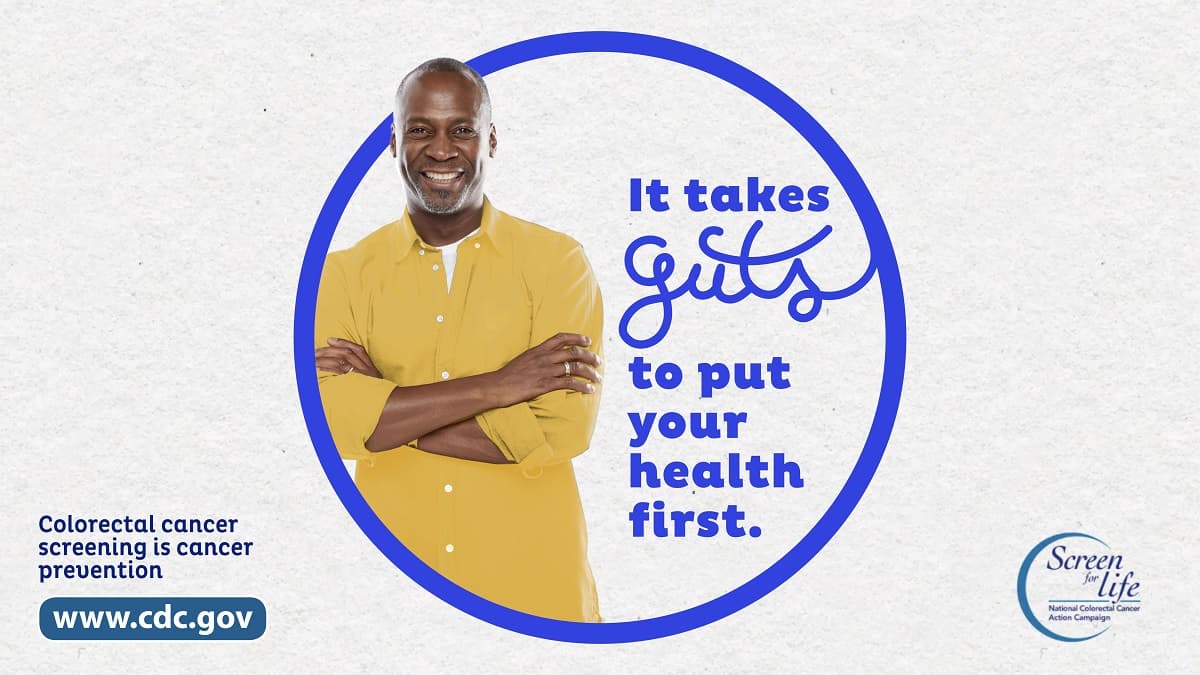
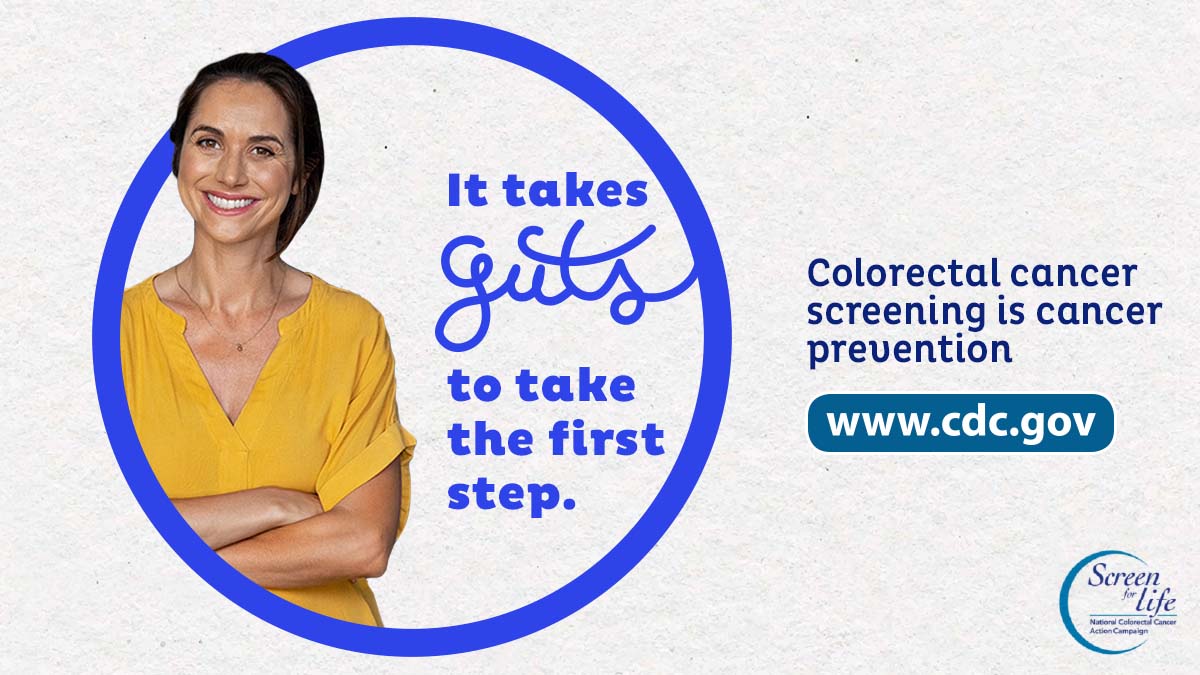
If you're 45 or older, it's time to talk to your doctor about #ColorectalCancer screening. Your options might surprise you. https://www.cdc.gov/colorectal-cancer/screening/index.html
#ColorectalCancer is one of the most common cancers among men and women, but it can be prevented with routine screening. Schedule your screening today. https://www.cdc.gov/colorectal-cancer/screening/index.html
Routine screening is #cancer prevention, because #ColorectalCancer doesn't always have symptoms. If you're 45 or older, talk to your doctor about screening options. https://www.cdc.gov/colorectal-cancer/screening/index.html
Getting screened for colorectal cancer may not sound pleasant, but it can actually prevent cancer. There are several screening test options; some you can even do from home. Talk to your doctor to decide which is best for you. https://www.cdc.gov/colorectal-cancer/screening/index.html
You have enough to worry about these days. You don't need to add colorectal cancer to the list. On-time screening tests can find polyps before they turn into cancer. Talk to your doctor and schedule a colorectal cancer screening test. https://www.cdc.gov/colorectal-cancer/screening/index.html
